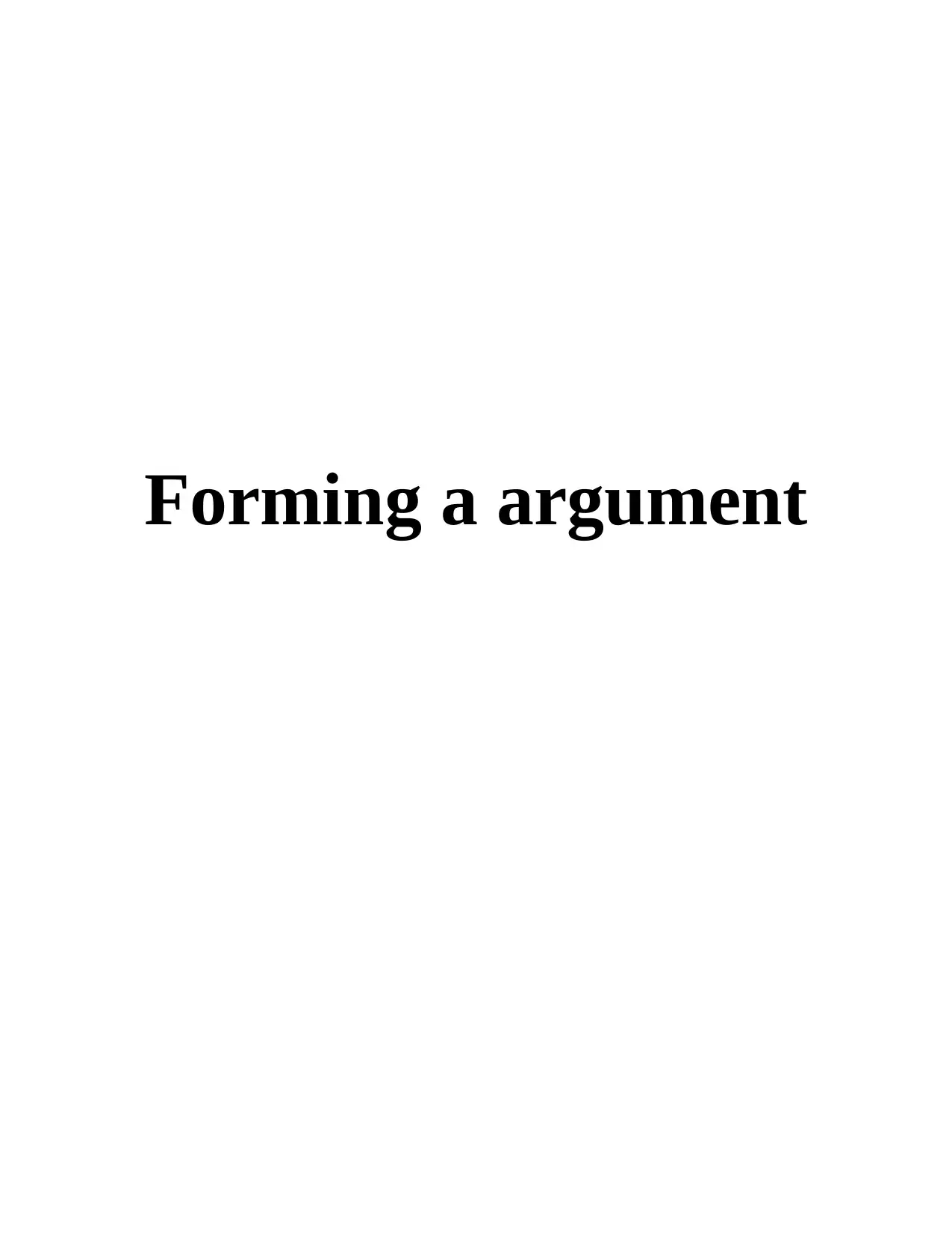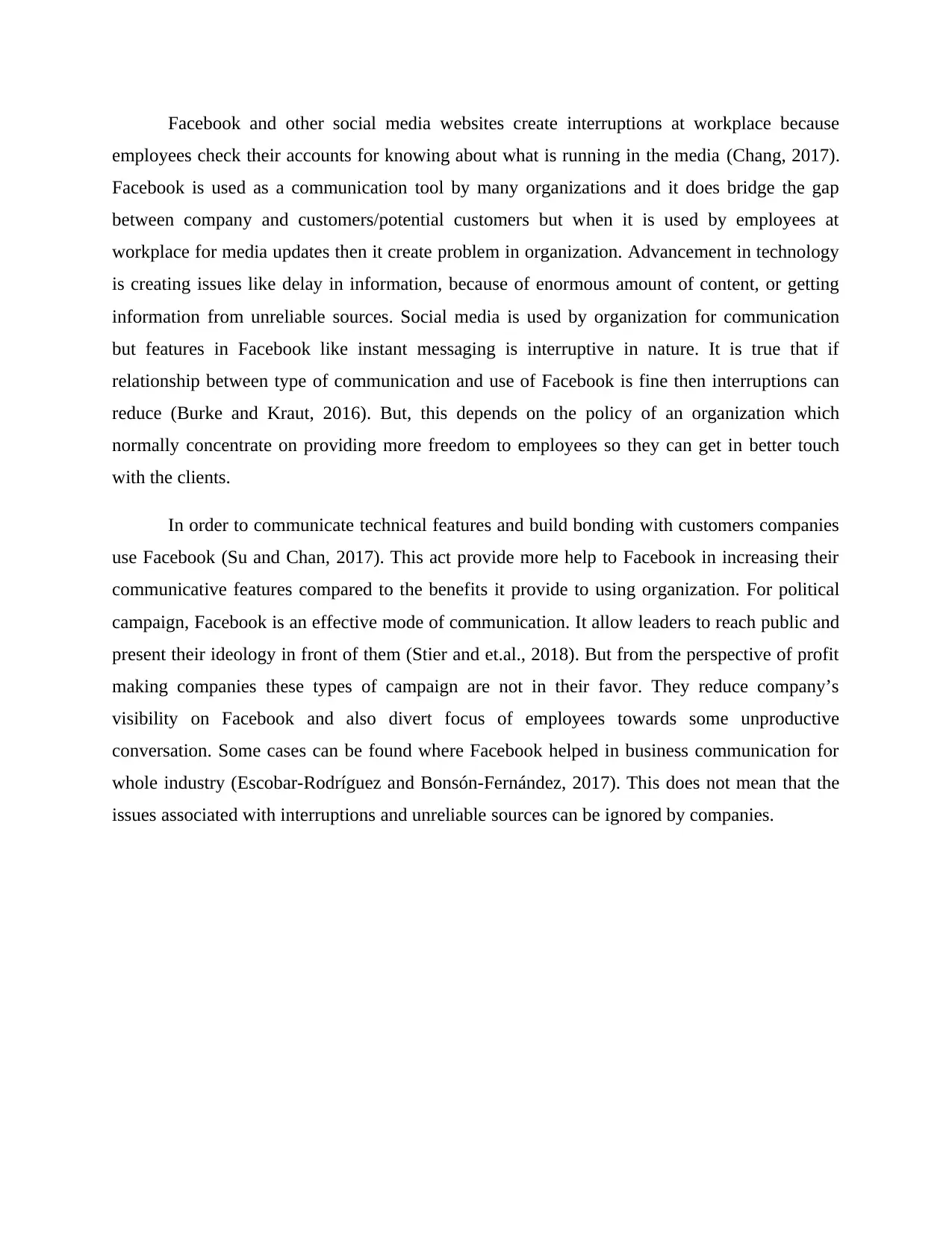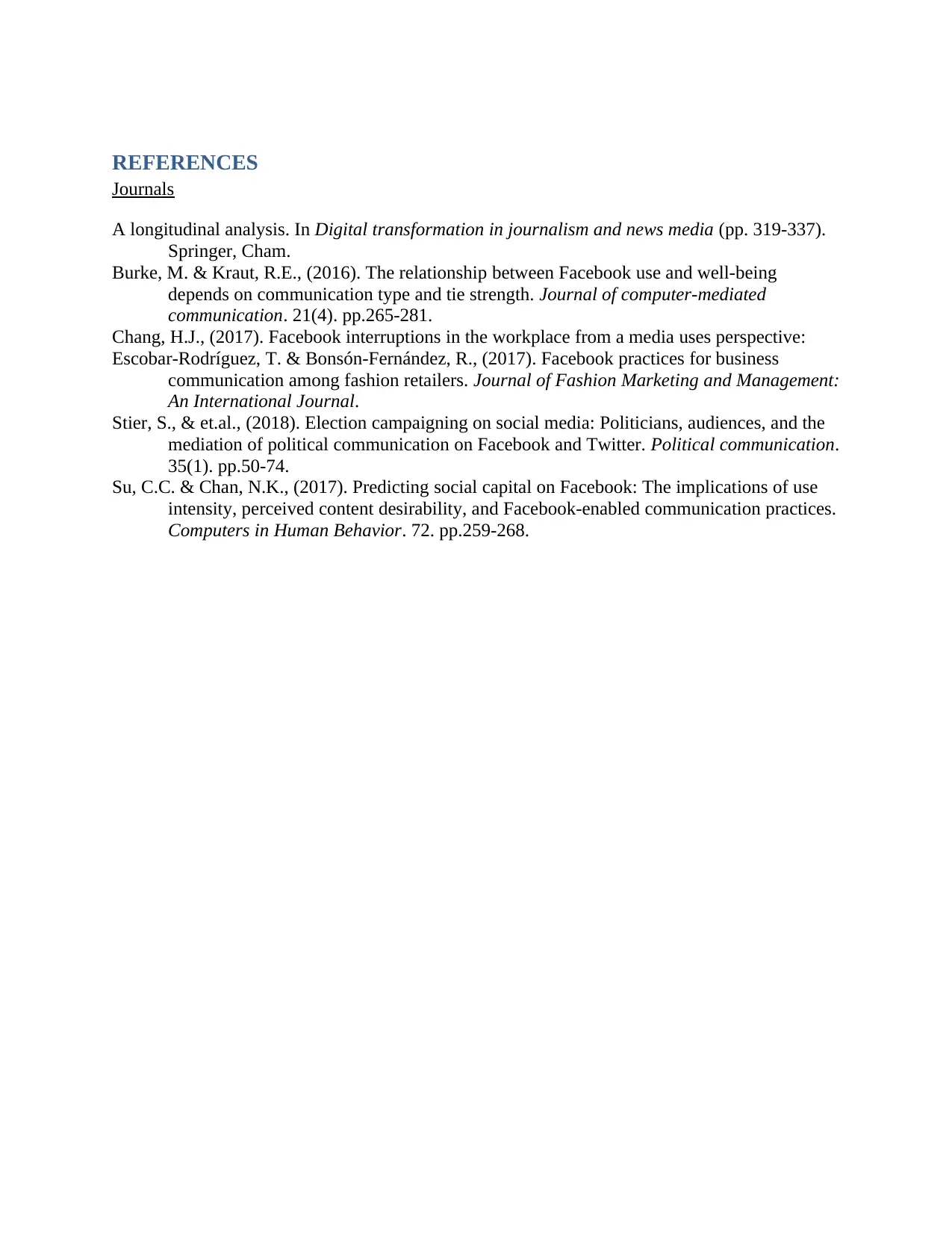MGT502: Assessment 1B - Forming an Argument on Facebook's Impact
VerifiedAdded on 2023/01/12
|3
|530
|68
Homework Assignment
AI Summary
This assignment analyzes the impact of Facebook and other social media platforms on workplace productivity and communication, focusing on the arguments that social media usage can create interruptions due to employees checking their accounts for media updates. The solution examines how Facebook is used by organizations for communication, while also highlighting the issues like delays in information and unreliable sources. The assignment argues that while Facebook can bridge the gap between companies and customers, its use by employees for media updates can be problematic. The analysis considers the impact of Facebook's features, like instant messaging, and how they can be interruptive. It also references research on the relationship between communication type, Facebook use, and employee well-being, as well as the role of Facebook in business communication and political campaigns. The assignment concludes by acknowledging the potential benefits of Facebook while emphasizing the importance of addressing interruptions and unreliable information sources.
1 out of 3







![[object Object]](/_next/static/media/star-bottom.7253800d.svg)